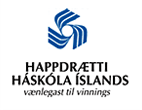Question
Do elves exist?
Asked By
Hallvarður J. Guðmundsson, b. 1989
Answer
There have been beliefs in other types of people inhabiting the earth alongside mankind but invisible to their eyes ever since stories began. Stories about how they lived, their dwellings and dealings with the human world have been passed down from generation to generation. Those who are endowed with special gifts may even be able to catch an occasional glimpse of these mysterious fellow-travellers of ours. Ideas of this kind were formerly widespread throughout the world, the beings in question being known under many different names and described in different ways. Across the whole of northern Europe there were stories that presented a similar picture of them, in human shape or very like it, with farms and animals, at home in the landscape, and considered to have greater magical powers and a more spiritual nature than ordinary human beings. Up until the beginning of the last century such beliefs were alive and kicking among the peoples of this cultural area, but as the 20th century progressed they lost more and more ground to a different world view, one that science and the arts, politics, technological advance and religions all conspired to promote and reinforce - the modern vision of nature of Western civilisation. As things stand, with the exception of a few places in Ireland, the last refuge of the elves and hidden people in their ancient sphere of influence appears to be in the Icelandic landscape and in Icelandic hearts.
Translated by Nicholas Jones. Image: Arthur Conan Doyle, Spiritualism, and Fairies
Um þessa spurningu
Dagsetning
Published27.1.2006
Category:
Keywords
Citation
Valdimar Tr. Hafstein. „Do elves exist?“. The Icelandic Web of Science 27.1.2006. http://why.is/svar.php?id=5597. (Skoðað 16.4.2024).
Author
Valdimar Tr. Hafsteinprófessor í þjóðfræði við HÍ



